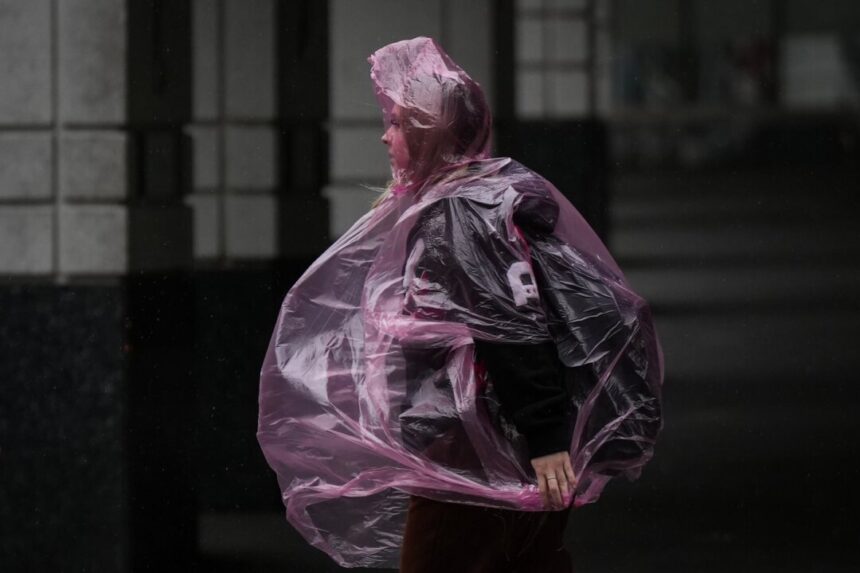VANCOUVER—Strong hurricane-force winds exceeding 120 km/h are currently battering parts of the British Columbia coast, leaving over 150,000 BC Hydro customers without power as a “bomb cyclone” forms off Vancouver Island.
Environment Canada has issued more than 50 warnings, advisories, and alerts related to the storm, covering a vast area that includes Vancouver Island, coastal regions, and extending into the Interior.
The storm is expected to peak overnight, with central and north coast winds reaching up to 120 km/h. Remote areas like Sartine Island have already experienced winds exceeding 130 km/h as of Tuesday afternoon.
The risks associated with the storm, such as coastal flooding, power outages, and fallen trees, are expected to persist well into Wednesday.
Meteorologist Cindy Day defends Environment Canada’s use of the term “bomb cyclone,” explaining that it refers to a non-tropical storm caused by a rapid drop in atmospheric pressure at its center, a phenomenon known as explosive cyclogenesis.
Day emphasizes that using scientific language like “bomb cyclone” and “atmospheric river” can help the public better understand and prepare for extreme weather events.
In British Columbia, an atmospheric river originating near Hawaii is commonly referred to as a “pineapple express.”
Despite some criticism for using terms like “bomb” in a meteorological context, Day believes that as long as these terms are used correctly and in the proper context, they serve to inform rather than sensationalize weather events.
Environment Canada predicts that the bomb cyclone off the coast of Vancouver Island will have widespread effects, with strong easterly winds intensifying over North Vancouver Island before gradually weakening as the system moves offshore.
Key areas like Victoria and the Sunshine Coast are expected to experience winds of up to 100 km/h. The province has assured that emergency management teams are prepared, with the Ministry of Emergency Management working closely with communities and the River Forecast Centre monitoring weather patterns and river conditions.
BC Ferries has cancelled multiple sailings due to the deteriorating weather forecast, urging passengers to stay informed and flexible with travel plans as severe weather conditions can change rapidly.
The warnings about the bomb cyclone come after Metro Vancouver saw its first snowfall of the season on Monday night.
Please rewrite this sentence.
Source link





